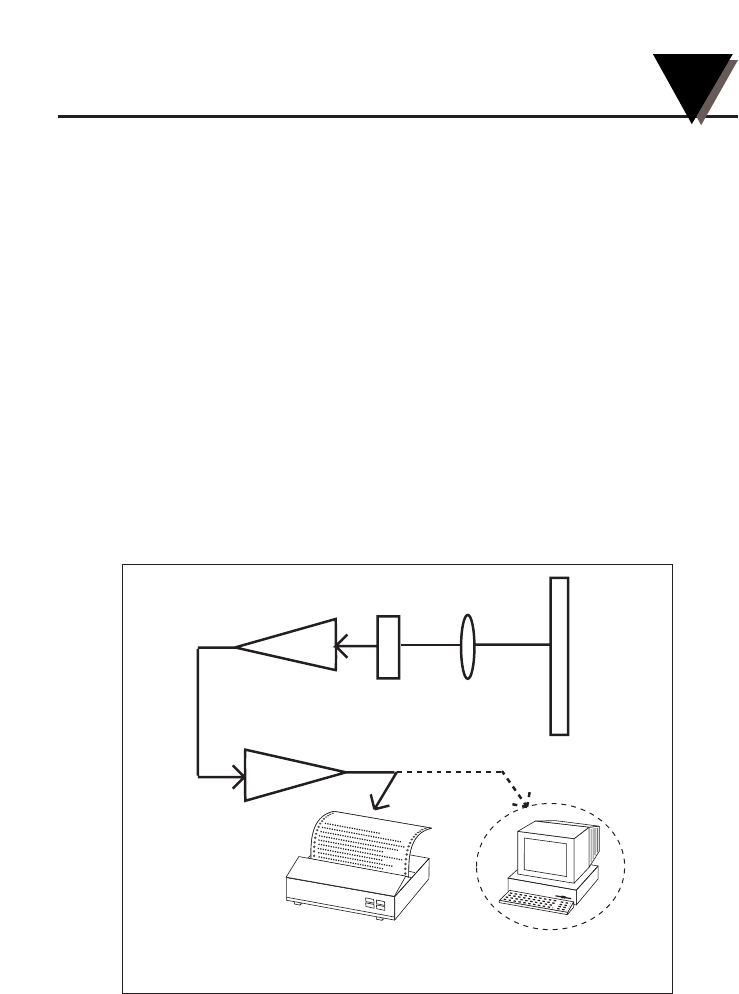
A-1
Appendix: How Infrared Thermometry Works
A
Thermal Radiation
Heat is transferred from all objects via radiation in the form of
electromagnetic waves or by conduction or convection. All objects
having a temperature greater than absolute zero
(-273°C, -459°F, 0 K) radiate energy. The thermal energy radiated
by an object increases as the object gets hotter. Measurement of this
thermal energy allows an infrared thermometer to calculate the
object’s temperature if the emissivity (blackness) is known.
Generally, it is convenient to measure the amount of radiated
energy in the infrared part of an object’s radiation spectrum.
Figure A-1 shows a block diagram of an infrared radiation
thermometer. Energy from the object is focused by the lens onto the
detector. As the detector heats up, it sends out an electrical signal,
which in turn is amplified and sent to the circuitry of the
thermometer. The thermometer software then calculates the
temperature of the object.
Figure A-1. Infrared Thermometer Block Diagram
OBJECT
LENS
DETECTOR
OR
SIGNAL OUTPUT TO SERIAL PRINTER
OR PERSONAL COMPUTER
AMPLIFIER
THERMOMETER
CIRCUITRY AND
DISPLAY


















